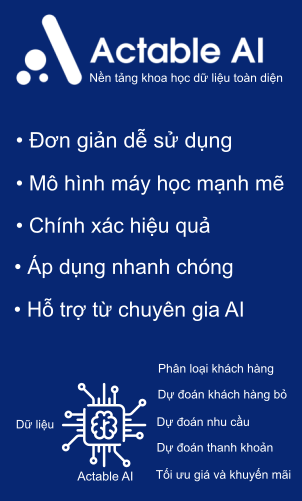To improve the quality of education
Dr. Nguyen Thi Thu Tra (*) and VET / VnEconomy’s Ngan Ha discuss the significant challenges facing Vietnam in enhancing the quality of its education sector.

From an external perspective, what do you believe are the challenges Vietnam faces in improving its education quality?
I see that Vietnam is confronting several significant challenges in enhancing the quality of its education.
One noticeable issue is the considerable gap between the ambition to provide universal education and the actual quality of education in different regions (urban vs. rural areas), which spans from teacher quality to educational infrastructure. There is also a concerning imbalance between the length of study and the quality of education. The pressure on students is immense, yet the outcomes and practical application of what is learned remain inadequate. This issue is evident at all levels of education when compared internationally.
However, Vietnam also has several opportunities and the potential to improve its education quality. The country benefits from a strong culture of learning; the Vietnamese people are diligent, hardworking, and quick to embrace new developments and technological applications in education. But this advantage remains largely spontaneous or trend-driven, rather than systematically organized and sustained on a larger, long-term scale.
What should Vietnam do to overcome these challenges and work towards a quality, modern education system?
In leveraging its strengths, Vietnam should integrate such elements into its education and training policies. The focus should be on more practical application, from secondary education through to higher education. This means that educational programs should emphasize vocational training more, to enhance worker skills.
Vocational education should combine both theoretical knowledge and hands-on skills. By doing so, when engaging with international education standards or programs, such as multimedia-based training methods, Vietnamese students will be better equipped and more comfortable in adapting.
Given the emerging development trends now and others in the future, do you have any recommendations or suggestions for Vietnam?
To maximize the opportunities for practical education and training, it is essential for the government, educational institutions, the business community, and international organizations to work closely together on building a more comprehensive, effective, and well-structured education system that caters to different groups, regions, and learners.
In this regard, I believe Vietnam could focus on three models that combine learning with practical work.
First, a work-based learning program. This model systematically integrates on-the-job training with classroom learning, governed by a vocational (or employment) contract, with clear responsibilities shared between the three parties: the learner, the school, and the employer.
Under this approach, apprentices are contracted by employers and are compensated (salary or allowances). Employers are responsible for providing a training program that leads to a specific career. Upon completion of this program, apprentices are awarded a nationally-recognized vocational qualification.
Depending on the country and its implementation, participants may be contracted with employers and/or receive compensation, and they may be considered either students or apprentices.
Second, workplace-based training programs. Under this model, employees gain knowledge and skills by performing tasks and reflecting on their work within the context of their profession. This can be combined with training, hands-on practice, and one-on-one guidance. However, this may not necessarily take place in a real work setting but can be simulated in vocational education facilities.
Third, a dual system. This combines a practical apprenticeship at a company (hands-on training) and vocational education at a vocational school (theoretical education) within a single program, ensuring a balance between theory and practice. Interns are contracted by employers and receive compensation (salary or allowances).
What should Vietnam do to adapt to these new trends?
From my perspective, Vietnamese people are among the most adaptable and quick to adjust in the international community. So, rather than extensive preparation, the focus should be on taking practical action.
For example, Vietnam can immediately learn from and apply the work-study model from France. This model involves key stakeholders, including not only training institutions, businesses, and learners but also policy makers and funding bodies, the government, local authorities, tax collection agencies for training, and those responsible for managing, developing, and establishing training contracts.
In France, there are 20 national organizations responsible for collecting training taxes, operating under local Chambers of Commerce and Industry. This system is crucial, as it enables local regions to develop constructive relationships with vocational training sponsors, allowing them to mobilize their members in various fields of study.
The Work-Study Center model was initially created by organizations and groups of companies such as trade unions, professional branches, and consular organizations. The primary goal was to meet the needs of their members by setting recruitment and training provisions for young professionals.
Meanwhile, organizations focused on referencing and quality assessment look at professional activities, skills, career paths, training programs, and certification. As a result, students graduating from work-study programs not only gain hands-on expertise but also receive qualifications that match the quality of traditional university degrees.
Looking ahead, do you envision any collaboration between AVSE Global and Vietnam to improve the quality of education and establish connections with top educational institutions like CNAM University in France?
CNAM University is a pioneer in balancing theory and practice in education. It was one of the first institutions in France to develop the work-study model and continues to assist many countries in creating pilot training projects that cater to labor market needs. To make this possible, countries have had to strengthen inter-ministerial cooperation, between the Ministry of Education, the Ministry of Labor, and the Ministry of Finance, as these contribute to building a circular system that includes training taxes, training centers, referencing structures, and quality standards aligned with industry requirements. I am eager and honored to serve as a bridge to connect CNAM and Vietnam to explore this work-study model.
Additionally, with AVSE Global’s international expertise and its community of professionals and scholars, I am confident we can explore and implement training models like alternating training, on-the-job learning, and dual training mixed with work-study programs. This approach will enhance the quality and effectiveness of education and training in Vietnam and improve productivity, skills, and workforce development.
(* )Dr. Nguyen Thi Thu Tra is the Deputy Director, Directorate of Research, at CNAM University in France.




















